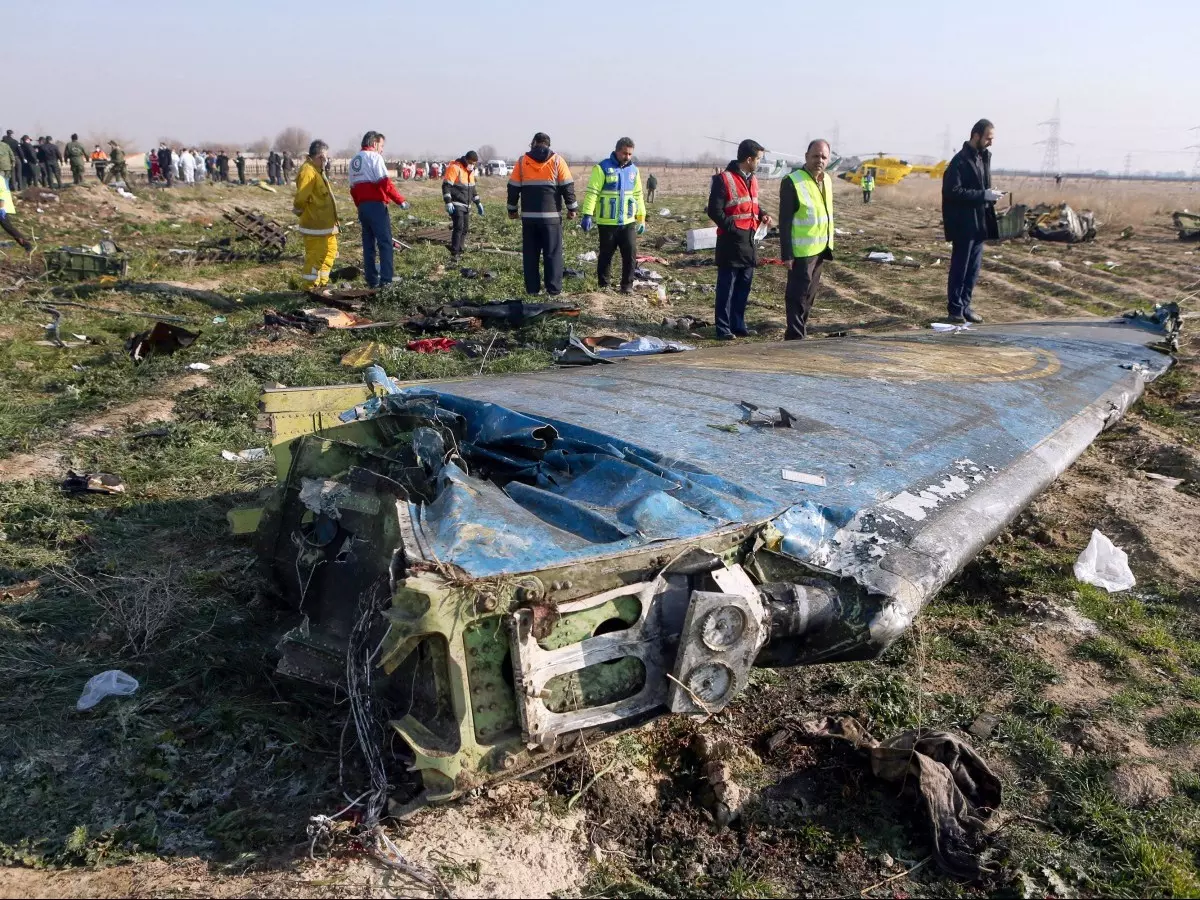After Denial, Iran Finally Admits Its Missile 'Unintentionally' Blew Ukraine Plane Killing 176
Iran admitted that its military unintentionally shot down the Boeing 737 which went down on Wednesday the same day Iran had launched a series of missile strikes at US Military bases in Iraq. The plane en route to the Ukrainian capital of Kyiv was carrying 167 passengers and nine crew members from several countries including 82 Iranians.

Ending the speculation around the mysterious crash of a Ukrainian jetliner minutes after it took off from the Tehran International Airport, Iran admitted that it's military ¡°unintentionally¡± shot down the Boeing 737 which went down on Wednesday, the same day Iran had launched a series of missile strikes at US Military bases in Iraq.

The plane, en route to the Ukrainian capital of Kyiv, was carrying 167 passengers and nine crew members from several countries, including 82 Iranians, at least 63 Canadians and 11 Ukrainians.
Blaming it on a ¡°human error¡±, a military statement carried by state media said the plane was mistaken for a "hostile target" after it turned toward a "sensitive military center'' of the Revolutionary Guard. The military was at its "highest level of readiness," it said, amid the heightened tensions with the United States.

"In such a condition, because of human error and in a unintentional way, the flight was hit,'' the statement said. It apologized for the disaster and said it would upgrade its systems to prevent future tragedies. It also said those responsible for the strike on the plane would be prosecuted.
Iran had initially blamed technical error for the crash, which Ukrainian International Airlines denied and said that the jet was examined just a few days before the crash.

Citing intelligence, the US and Canada had claimed that they believed Iran shot down the aircraft with a surface-to-air missile, a conclusion supported by videos of the incident.
Even after this, Iran continued to deny the allegation and maintained that its air defense system had anything to do with the crash. Iran's acknowledgement of responsibility for the crash was likely to inflame public sentiment against authorities after Iranians had rallied around their leaders in the wake of Soleimani's killing. The general was seen as a national icon, and hundreds of thousands of Iranians had turned out for funeral processions across the country.

"A sad day," Iran's Foreign Minister Mohammad Javad Zarif tweeted. "Human error at time of crisis caused by US adventurism led to disaster. Our profound regrets, apologies and condolences to our people, to the families of all victims, and to other affected nations."
"This is the right step for the Iranian government to admit responsibility, and it gives people a step toward closure with this admission," said Payman Parseyan, a prominent Iranian-Canadian in western Canada who lost a number of friends in the crash. "I think the investigation would have disclosed it whether they admitted it or not. This will give them an opportunity to save face."
